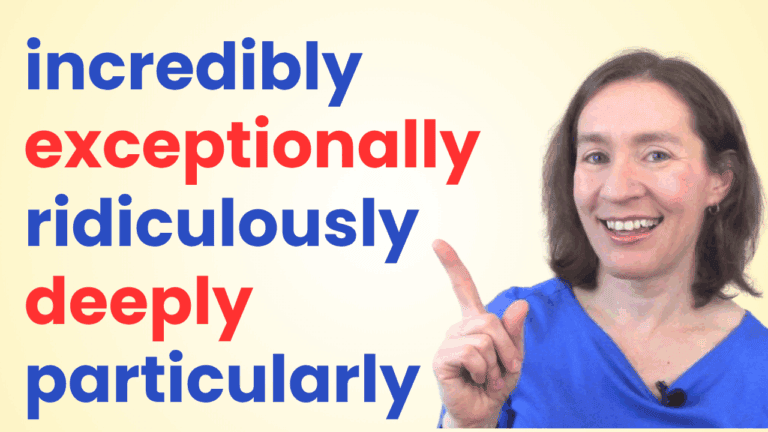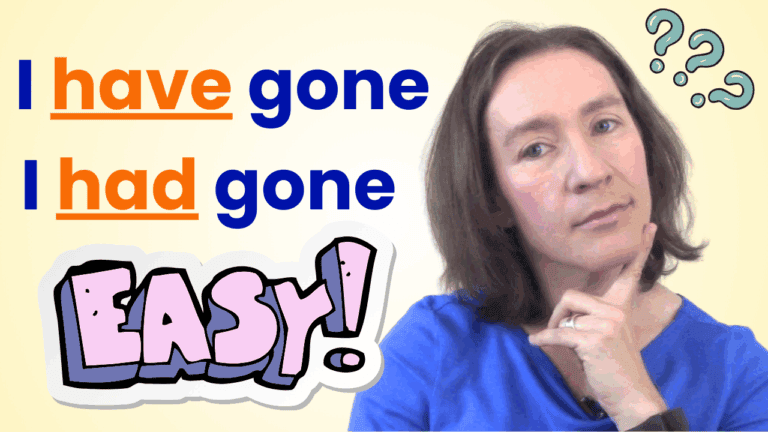
Hi students, it’s Shayna from EspressoEnglish.net. And today, I want to correct a mistake that I’m seeing a lot of students make. Beginner students, intermediate students and advanced students make this mistake often.
one of
So, the problem is, in phrases like this one: “One of my friend is from Italy.” There’s something that’s incorrect in this phrase. Can you figure out what it is?
Okay, I’ll tell you. It should be: “One of my friends is from Italy,” because I have many friends and one of them is from Italy.
You might think it’s strange to have “friends is” because “friends” is plural and “is” is the singular form, but actually it’s because the subject of this is one. “One of my friends is from Italy.”
If we didn’t have “one of,” then we would say, “My friends are from Italy.” But when using this structure, one of my friends, we have friends plural and “is” singular to match with the word “one.”
a few of / some of / most of / all of
Now, let’s look at some other similar sentences. How about with these phrases? A few of, some of, most of, all of and none of. Well, to make phrases with these, we still use friends, so we have a few of my friends, but now we use “are.” – “A few of my friends are from Italy.”
Why? Because now a few of, now we’re talking about multiple people, two or three or four people, and it’s the same with some of, most of and all of. Some of my friends are from Italy. Most of my friends are from Italy. And “all” also uses a plural verb. “All of my friends are from Italy.”
none of
Now, what about none of? None means zero. Okay? With none of my friends, do we use is or are?
Well, there is actually some debate about this question. Some people say that none stands for not one and should be singular, but in everyday spoken English, we use “are.” “None of my friends are from Italy.” Okay?
“Are” is used with all of these expressions and the only one that uses “is” is one. “One of my friends is from Italy” and the rest of them all use “are.” Okay? But all have friends, not friend. “One of my friends” and that’s the same for all of these. Got it?
Uncountable nouns
Now, this rule only applies when we have a countable noun here.
In English, we have countable nouns which are things we can count like friends, apples, houses, etc., and we have uncountable nouns which are things we can’t count. Examples of uncountable nouns are information, stuff, butter, rice. We can’t count these things, and uncountable nouns are always singular.
When we have an uncountable noun, like let’s use information. Okay? In English, we always say information, never say informations. Then if we would say “Some of this information is new,” because information is always singular. “Some of this information is new, most of this information is new, all of this information is new, and none of this information is new.” These phrases work differently, depending on whether you have a countable or an uncountable noun.
With countable nouns, we can have “one of my friends is.” With uncountable nouns, we can’t use the word “one” actually and we also can’t use “a few” with uncountable nouns, but we can use the rest of them: some of, most of, all of and none of the information is new. I hope that wasn’t too confusing for you, so let’s put it into practice.
Under this video, I’d like you to write two sentences and let’s use this idea of friends. Write a sentence: “One of my friends is.” It could be where they are from. It could be their profession, what is their job. So, one of my friends is a doctor, or one of my friends is a firefighter, or it could be something they are doing. One of my friends is studying biology in University. So, write one sentence using one of my friends and then write one more sentence using one of these like none of. “None of my friends are firefighters.” I don’t have any friends who are firefighters, so none of my friends are firefighters.
I look forward to seeing your sentences in the comments to this video, and if you want more practice, you can take a course with me. I have lots of courses over at Espresso English. And I can teach you about all the aspects of the English language, and every lesson in my courses has practice exercises so that you can actually use the English that you’re learning.
I hope to see you in the course, and I hope you enjoyed today’s video. Bye for now.
Learn more: Irregular plural nouns










